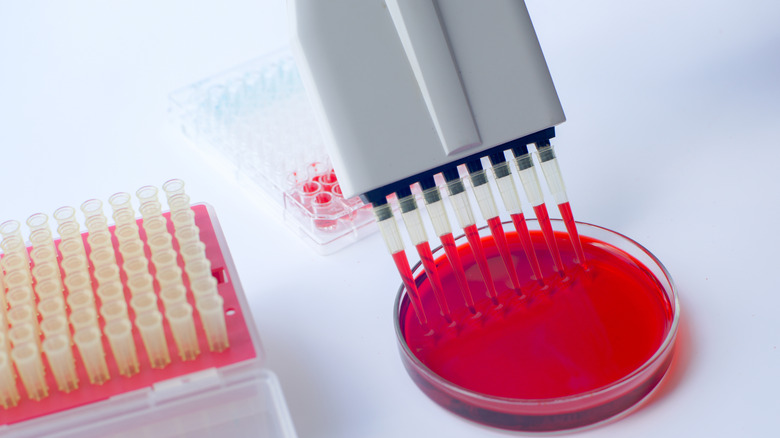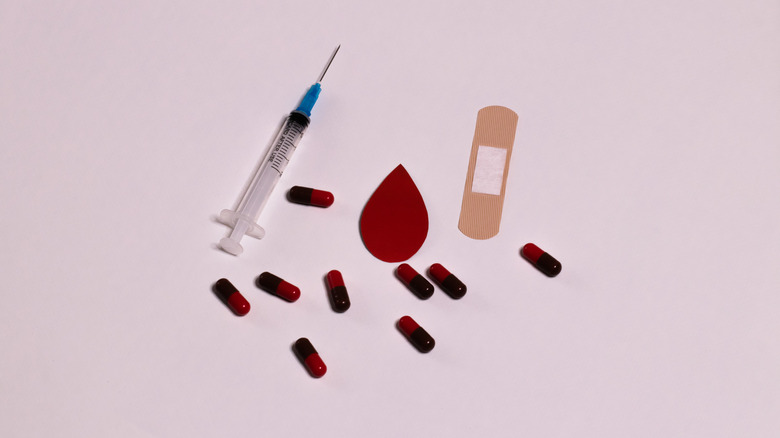What Is Hemophilia?
Hemophilia is a rare, inherited disorder in which a person's blood doesn't clot properly, which can lead to spontaneous or excessive bleeding. According to the Centers for Disease Control and Prevention (CDC), blood contains certain proteins known as clotting factors, which can help stop and slow down bleeding at the site of a cut or injury. People with hemophilia, however, have low levels of clotting factors in their blood, making them more susceptible to bleeding. There are many different types of hemophilia, the most common of which are hemophilia A and B.
While type A hemophilia is caused by a lack of clotting factor 7, hemophilia B is caused by a lack of clotting factor 8. Some of the most common signs and symptoms of hemophilia include bleeding into the joints and skin, bleeding of the mouth and gums, bleeding after vaccinations and circumcision, frequent nosebleeds, and blood in the urine and stool (per CDC). Because of this, hemophilia is most often diagnosed after an abnormal bleeding episode. Since hemophilia is a genetic disorder caused by a recessive change or mutation of the X chromosome, it is more likely to occur in males, who only inherit one X chromosome.
Treatments for hemophilia
Although there's no cure for hemophilia, it can be treated with replacement therapy and managed with medication. According to Medical News Today, treatment involves replacing the blood clotting factors that are too low or missing with donated human blood or synthetically produced factors known as recombinant clotting factors. For people with severe hemophilia A, doctors usually recommend prophylactic therapy, which entails consistent replacement therapy to help prevent bleeding. People with milder forms of hemophilia could benefit from demand therapy, which is designed to stop a bleeding episode on-demand.
Fortunately, medications are available to help treat hemophilia. For one, the FDA-approved medication emicizumab-kxwh is used to reduce and prevent bleeding in people with hemophilia A. Another hemophilia A treatment is desmopressin, which is intended to stop clots from breaking down. For people with hemophilia B, doctors often prescribe Rixubis or Rebinyn (via Medical News Today). Hemophilia treatments can sometimes cause complications, however, like blood clots and viral infections that may cause damage to your joints and muscles. That's why it's important to talk to your doctor at the first sign of complications.


